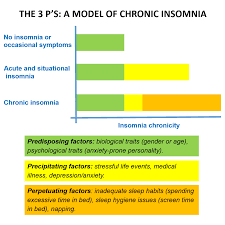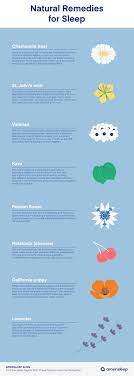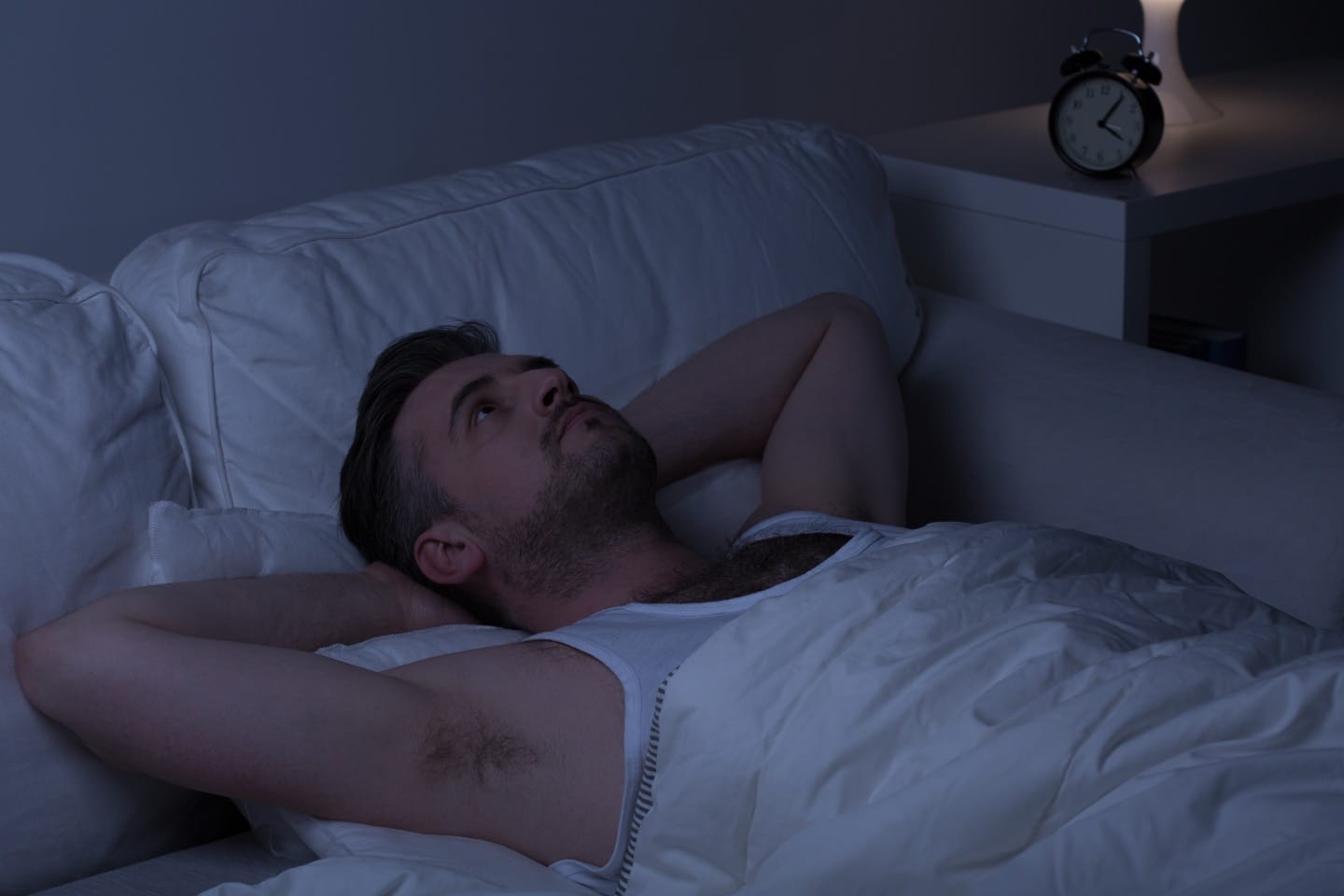The Connection Between Alcohol and Insomnia
Insomnia is a common sleep disorder that affects millions of people worldwide. It can be caused by various factors, including stress, anxiety, poor sleep habits, and even certain substances like alcohol.
While alcohol is often used as a way to relax and unwind after a long day, it can actually have a negative impact on your sleep quality. Many people believe that having a nightcap before bed helps them fall asleep faster, but the reality is quite different.
Alcohol disrupts the normal sleep cycle by reducing the time spent in rapid eye movement (REM) sleep, which is crucial for restorative rest. This can lead to fragmented sleep, frequent awakenings during the night, and overall poorer sleep quality.
Moreover, alcohol is a diuretic, meaning it increases urine production and can lead to more frequent trips to the bathroom during the night. This interrupts your sleep and makes it harder to achieve deep, restful rest.
In addition to its direct impact on sleep architecture, alcohol can also exacerbate underlying issues that contribute to insomnia, such as anxiety and depression. While it may initially make you feel drowsy and relaxed, alcohol can disrupt your body’s natural circadian rhythm and interfere with the production of melatonin, the hormone that regulates sleep-wake cycles.
To improve your sleep quality and avoid alcohol-induced insomnia, consider reducing or eliminating alcohol consumption close to bedtime. Instead, opt for relaxation techniques like deep breathing exercises or meditation to unwind before going to bed.
Remember that establishing healthy sleep habits is essential for overall well-being. If you continue to experience insomnia despite making lifestyle changes, consult with a healthcare professional or sleep specialist for personalized guidance and support.
9 Common Questions About Alcohol and Insomnia: Effects, Symptoms, and Solutions
- What is alcohol insomnia?
- How does alcohol affect sleep?
- Does alcohol help with insomnia?
- Why does drinking alcohol cause insomnia?
- Can alcohol worsen existing sleep problems?
- What are the symptoms of alcohol-induced insomnia?
- How long does it take for alcohol to disrupt sleep patterns?
- Are there any tips for managing alcohol-related insomnia?
- When should I seek professional help for alcohol-related sleep issues?
What is alcohol insomnia?
Alcohol insomnia refers to the sleep disturbances and disruptions in the sleep cycle that can occur as a result of consuming alcohol. While some individuals may believe that alcohol helps them fall asleep faster, it actually interferes with the quality of their sleep. Alcohol can disrupt the normal stages of sleep, particularly REM (rapid eye movement) sleep, leading to fragmented and less restorative rest. This can result in waking up frequently during the night and feeling fatigued or unrested upon waking. Additionally, alcohol’s diuretic effect can increase nighttime trips to the bathroom, further disrupting sleep patterns. It’s important to recognize the impact of alcohol on sleep quality and consider making adjustments to promote better overall rest and well-being.
How does alcohol affect sleep?
Alcohol can have a significant impact on sleep quality and patterns. While some people may believe that consuming alcohol before bed helps them fall asleep faster, the reality is that alcohol disrupts the natural sleep cycle. It can reduce the time spent in restorative rapid eye movement (REM) sleep, leading to fragmented and shallow sleep. Additionally, alcohol is a diuretic, increasing the likelihood of waking up during the night to use the bathroom. Furthermore, alcohol can interfere with the body’s production of melatonin, the hormone that regulates sleep-wake cycles, disrupting the overall circadian rhythm. These effects combined can result in poorer sleep quality, frequent awakenings, and increased daytime fatigue.
Does alcohol help with insomnia?
Many people wonder, “Does alcohol help with insomnia?” While alcohol may initially make you feel drowsy and relaxed, it can actually worsen insomnia in the long run. Alcohol disrupts the normal sleep cycle by reducing the time spent in restorative REM sleep and can lead to fragmented sleep and frequent awakenings during the night. Additionally, alcohol is a diuretic, increasing the likelihood of waking up to use the bathroom, further interrupting your sleep. It’s important to recognize that relying on alcohol as a sleep aid can have negative effects on your overall sleep quality and well-being.
Why does drinking alcohol cause insomnia?
Drinking alcohol can cause insomnia due to its disruptive effects on the normal sleep cycle. While alcohol may initially make you feel drowsy and help you fall asleep faster, it impairs the quality of your sleep by reducing the time spent in restorative rapid eye movement (REM) sleep. This leads to fragmented sleep, frequent awakenings during the night, and overall poorer sleep quality. Additionally, alcohol is a diuretic, increasing urine production and prompting more trips to the bathroom throughout the night, further interrupting your rest. Beyond its direct impact on sleep architecture, alcohol can also worsen underlying issues like anxiety and depression that contribute to insomnia. By disrupting your body’s natural circadian rhythm and melatonin production, alcohol interferes with your ability to achieve a deep and restful night’s sleep.
Can alcohol worsen existing sleep problems?
Alcohol has the potential to worsen existing sleep problems. While some people may initially use alcohol as a way to relax and fall asleep faster, it can actually disrupt the natural sleep cycle and lead to fragmented, poor-quality sleep. For individuals already experiencing sleep issues, such as insomnia or difficulty staying asleep, alcohol can exacerbate these problems by reducing the time spent in restorative REM sleep and interfering with the body’s natural circadian rhythm. Over time, regular alcohol consumption before bedtime can contribute to chronic sleep disturbances and impact overall health and well-being. It’s important to be mindful of how alcohol consumption may affect your sleep patterns and consider adopting healthier alternatives to promote better sleep quality.
What are the symptoms of alcohol-induced insomnia?
Alcohol-induced insomnia can manifest through various symptoms that affect the quality and duration of sleep. Individuals experiencing this condition may notice difficulty falling asleep, waking up frequently during the night, having trouble staying asleep, and experiencing early morning awakenings. Furthermore, alcohol-induced insomnia can lead to fragmented sleep patterns, reduced overall sleep time, and a lack of restorative rest. These symptoms often result in daytime fatigue, irritability, difficulty concentrating, and impaired cognitive function. It is essential to recognize these signs and address them promptly to improve sleep quality and overall well-being.
How long does it take for alcohol to disrupt sleep patterns?
Alcohol can start disrupting sleep patterns as soon as it is consumed, with its effects becoming more pronounced as blood alcohol levels rise. Typically, alcohol can interfere with the normal sleep cycle within a few hours of consumption. While it may initially make you feel drowsy and help you fall asleep faster, it can lead to fragmented sleep, frequent awakenings during the night, and reduced time spent in restorative REM sleep. The impact of alcohol on sleep patterns can vary depending on factors such as the amount of alcohol consumed, individual tolerance levels, and overall health condition. It’s important to be mindful of how alcohol affects your sleep quality and consider limiting or avoiding its consumption close to bedtime for better restful sleep.
Are there any tips for managing alcohol-related insomnia?
For individuals struggling with alcohol-related insomnia, there are several tips that can help manage this issue. Firstly, it is advisable to limit or avoid alcohol consumption close to bedtime, as alcohol can disrupt the sleep cycle and lead to fragmented rest. Establishing a relaxing bedtime routine, such as reading a book or taking a warm bath, can signal to the body that it’s time to wind down and prepare for sleep. Additionally, practicing good sleep hygiene, including maintaining a consistent sleep schedule and creating a comfortable sleep environment free of distractions, can promote better sleep quality. If alcohol-related insomnia persists despite these efforts, seeking guidance from a healthcare professional or sleep specialist for personalized strategies and support may be beneficial.
When should I seek professional help for alcohol-related sleep issues?
If you are experiencing persistent alcohol-related sleep issues such as insomnia, disrupted sleep patterns, or difficulty falling and staying asleep despite making lifestyle changes, it may be time to seek professional help. Consulting with a healthcare provider or a sleep specialist can provide valuable insights into the underlying causes of your sleep problems and offer tailored solutions to improve your sleep quality. Professional guidance can help you address any potential health concerns related to alcohol consumption and develop effective strategies to promote better sleep habits for long-term well-being.



